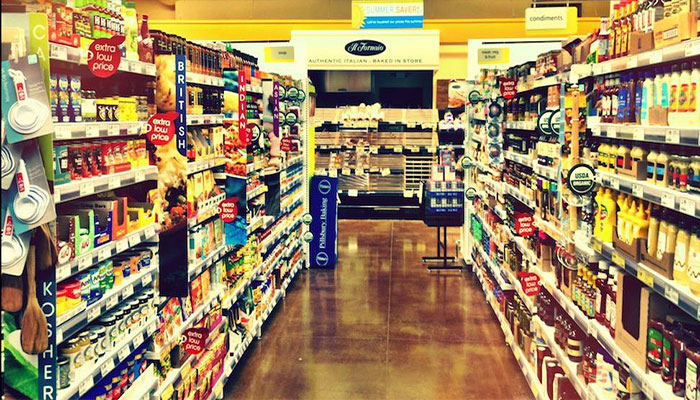Govt mulls setting up food authority to check inflation
ISLAMABAD: In the wake of rising food inflation in the country, the government is contemplating different options including the establishment of the Pakistan Food Authority (PFA) replicating the models of USA, UK, Australia, and India.
The government is considering different proposals and one of them is the establishment of the PFA for having one country, one food market, and one law.
Top official sources confirmed with The News in background discussions that the state regulatory mechanisms in Pakistan has been currently extending to a range of critical commodities and services, such as drugs, electricity, oil, gas, telecommunications, media, aviation, money, and chemicals, which are governed by independent federal regulatory authorities.
These regulatory authorities address the need for equity in quality and pricing and balance public and private interests by employing a range of economic
and administrative measures. Presently, the government of Pakistan does not have a regulatory authority for food control.
The cost to the state for not having a regulatory authority for food control is very high and includes reduced nutritional and health outcomes for the population and increased health costs, reduced economic productivity due to food-induced illness, impairment and death, reduced growth and innovation in the agriculture sector reduced domestic economic earnings from the agriculture and food sectors, reduced international trade, and losses in foreign earnings (unrealised and rejected exports).
It also resulted in increased political volatility because of food quality, availability, and price issues.
The official sources said globally, food standards are regulated by the FAO/WHO Codex Alimentarius (Codex). The Codex is a collection of internationally adopted food standards that is managed by a Commission comprised of 187-member states, including Pakistan. The Codex provides member states with the opportunity to collectively develop international food standards and provides member states with standards that can form the basis of national food standards.
In 1995, Codex became the WTO standards for which the international trade in food would be regulated. Since the recognition of Codex as the international standard for food and the trade in food, most countries of the world have established a national regulatory authority for food that oversees national food control systems.
While there is no “one size fits all approach” to a national food regulatory authority, Pakistan could learn a lot from the food regulatory authorities in the US, UK, Australia, India, China and the EU.
To ensure the population’s access to safe and nutritious food at affordable prices in Pakistan’s singular food market and to remove barriers to growth in domestic and international food trade, the official said that Pakistan should consider the establishment of an independent federal food regulatory authority, the Pakistan Food Authority (PFA).
The PFA, potentially located in the cabinet division, would have the responsibility for national food control systems (legislation, standards, policy and pricing), while the implementation and enforcement of the food control systems would remain be the responsibility of existing federal and provincial institutions.
Keeping food safe is a complex process that starts on the farm and ends with the consumer. High quality food control systems require the translation of global best practice to the national level.
The Food and Agriculture Organization of the United Nations (FAO) can be approached to technically advise the government of Pakistan on the development of a national regulatory authority for food control, in line with global best practice, the official concluded.
-
 Google Disrupts Chinese-linked Hacking Groups Behind Global Cyber Attacks
Google Disrupts Chinese-linked Hacking Groups Behind Global Cyber Attacks -
 Four People Killed In Stabbing Rampage At Washington Home
Four People Killed In Stabbing Rampage At Washington Home -
 Meghan Pushes Prince Harry Into Territory That’s Dangerous To His Brand: ‘She Isn’t Hearing A Word Of It’
Meghan Pushes Prince Harry Into Territory That’s Dangerous To His Brand: ‘She Isn’t Hearing A Word Of It’ -
 Christina Applegate Reflects On Lasting Impact Of Being Molested In Childhood
Christina Applegate Reflects On Lasting Impact Of Being Molested In Childhood -
 Martin Short Makes Big Decision Following Tragic Death Of Daughter
Martin Short Makes Big Decision Following Tragic Death Of Daughter -
 Antarctica’s Mysterious ‘gravity Hole’: What’s Behind The Evolution Of Earth’s Deep Interior?
Antarctica’s Mysterious ‘gravity Hole’: What’s Behind The Evolution Of Earth’s Deep Interior? -
 Hilary Duff Addresses Ashley Tisdale's 'toxic Mom Group' Claims And Matthew Koma's Firey Response
Hilary Duff Addresses Ashley Tisdale's 'toxic Mom Group' Claims And Matthew Koma's Firey Response -
 Jack Hughes's Proximity To Trump Angers Tate McRae Fans
Jack Hughes's Proximity To Trump Angers Tate McRae Fans -
 Neve Campbell Opens Up About Her 'difficult Decision' To Not Sign 'Scream 6'
Neve Campbell Opens Up About Her 'difficult Decision' To Not Sign 'Scream 6' -
 Nobel-winning Scientist Resigns From Columbia University After Epstein Links Revealed
Nobel-winning Scientist Resigns From Columbia University After Epstein Links Revealed -
 Prince William Remarks At BAFTAs 'indicative' Of King Charles Physical, Mental Health Too
Prince William Remarks At BAFTAs 'indicative' Of King Charles Physical, Mental Health Too -
 Kanye West's Last Measure To Save Bianca Censori Marriage As He Tries To Salvage Image
Kanye West's Last Measure To Save Bianca Censori Marriage As He Tries To Salvage Image -
 Kim Kardashian Finally Takes 'clear Stand' On Meghan Markle, Prince Harry
Kim Kardashian Finally Takes 'clear Stand' On Meghan Markle, Prince Harry -
 Christina Applegate Makes Rare Confession About What Inspires Her To Keep Going In Life
Christina Applegate Makes Rare Confession About What Inspires Her To Keep Going In Life -
 Patrick J. Adams Shares The Moment That Changed His Life
Patrick J. Adams Shares The Moment That Changed His Life -
 Selena Gomez Getting Divorce From Benny Blanco Over His Unhygienic Antics?
Selena Gomez Getting Divorce From Benny Blanco Over His Unhygienic Antics?




